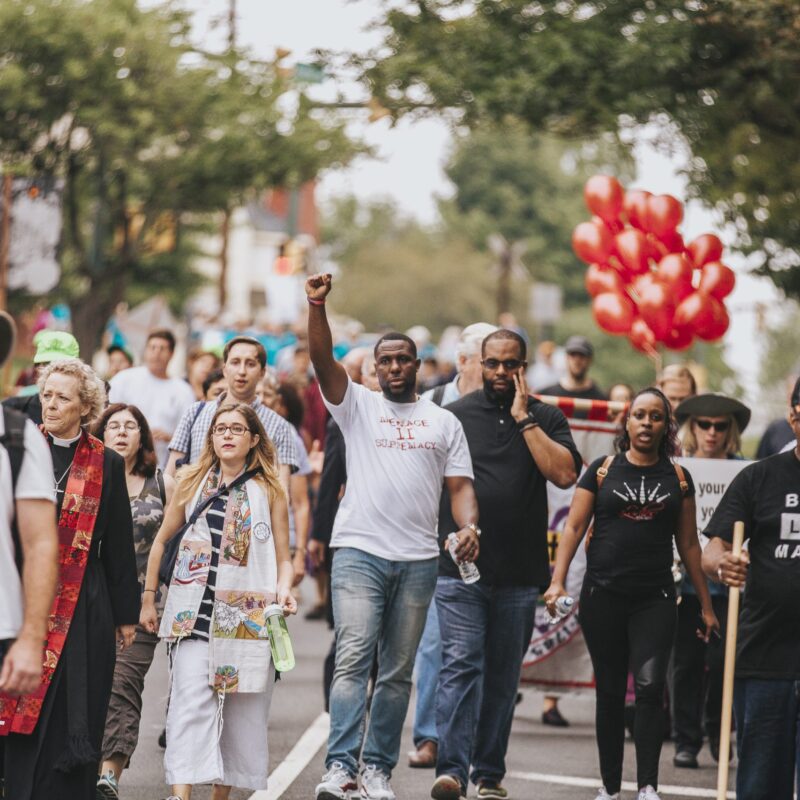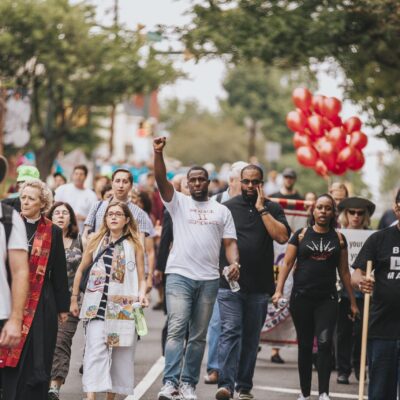After 10 years and seven violent sexual attacks that had been linked to him, Nathan Antonio Washington stood up in Charlottesville Circuit Court in his striped jail uniform and offered apologies to his family, his victims and the community he had kept on edge for nearly a decade.
 Nathan Antonio Washington will serve four life sentences. |
| Previous coverage:
Washington gets four life terms Serial rape suspect linked to a third attack Grand jury indicts Washington Rapist suspect tried in the media County man arrested in two sexual attacks |
“I didn’t mean for these things to happen the way they did,” he said. “I accept my punishment, life in jail—” And here, Washington, a married father of four, caught his slip: “—in prison,” he said, clearly emotional. “I accept that.”
On February 26, Washington was handed sentences from the city and county that will effectively lock him up for the rest of his life. As part of a plea agreement that spared his victims the ordeal of appearing in court, Washington received four consecutive life sentences for four attacks in the city, plus 20 more years for a breaking and entering charge in the county.
“The sentencing in these cases close a chapter of devastation that this community has never seen before,” said city Commonwealth’s Attorney Dave Chapman in court. “We certainly won’t see it again from this man.”
Before Washington was sentenced, Chapman read from one of the two victim-impact statements. “I never sleep in the dark,” wrote one of Washington’s victims. “I never go outside alone. I feel like I see you everywhere.”
After the sentencing, Chapman said that in the statements, one sees the spectrum of reactions to being sexually assaulted.
“Some have coped with their victimization in a way that leaves them remarkably healthy after a period of five or more years,” he said. “Other people never recover. Ever. They’re devastated. And that’s true for one of our victims. She’ll never recover from this.”
The day after Washington’s sentencing, the Thomas Jefferson Area Crime Stoppers announced that it would give a $60,000 award to a person whose tip proved instrumental in linking Washington to the serial rapist’s seven attacks. It was the largest award that the local Crime Stoppers has given to one person, said treasurer Fred Payne.
“Until this tip, things didn’t come together,” said Payne. “There was a lot of really excellent police work that went on after it.”
Crime Stoppers does not identify recipients of awards. But Payne did say that this recipient was able to recognize Washington and give police the license plate number of the car he was driving. At the December plea hearing, prosecutors said that an Albemarle County woman who Washington sexually assaulted in 2004 was able to get the license plate number.
As part of the plea agreement, city and county police investigators interviewed Washington regarding any unsolved assaults of the same or lesser magnitude. Lt. Greg Jenkins of the Albemarle Police Department declined to say how many open cases they are looking at in light of information Washington may have provided.
“We are still evaluating information from that particular interview,” he said. “We’re going to see how that interview impacts other cases that might be pending.”
Even after Washington’s sentencing, the fallout from the serial rapist case continues. On February 20, U.S. District Judge Norman K. Moon dismissed a lawsuit filed by Larry Monroe against the city, Police Chief Tim Longo and Officer James Mooney. Originally filed in 2004, Monroe claimed police violated his constitutional rights by asking him to submit to a cheek-swab DNA test as part of a controversial police effort to catch the serial rapist. City police approached nearly 190 African-American men in what Monroe’s lawyers argued was a “virtual dragnet of black males.”
In October 2007, Moon shot down Monroe’s efforts to certify his lawsuit as class action. One of Monroe’s attorneys, Debbie Wyatt, says that they asked Moon to dismiss the lawsuit, which contained only a secondary claim, so that they could move forward with an appeal of the claims that matter the most to Monroe, including the class action certification.
“We decided to forgo holding up this case to go to trial on a claim that was secondary to us,” says Wyatt. “So we will go ahead and appeal to get a ruling on the ones that matter. There was no ruling against us. We asked that the claim be dismissed.”
C-VILLE welcomes news tips from readers. Send them to news@c-ville.com.





